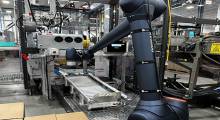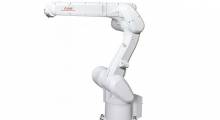Trump wants to bring back lost manufacturing jobs
A key component of Trump’s popularity is related to what he claims are faulty trade deals and the documented draining of U.S. manufacturing jobs.
While critics say trade deficits with other nations have increased after trade deals were implemented, blue collar manufacturing jobs have decreased and worker wages have essentially remained flat while top corporate executive pay has risen, trade has created a new set of jobs, proponents point out.
Donald Trump isn’t buying this argument.
More part time labor without traditional benefits associated with high paying manufacturing jobs are the goal he aspires to achieve.
Bring back the days of old, is the undercurrent. But can he force manufacturing jobs to remain in the U.S. without implementing communistic or socialistic market principles on what was a capitalistic economy?
Forcing manufacturing jobs to remain in the U.S. would be expensive and ineffective, say critics
“Apple and all of these great companies will be making their products in the United States, not in China, Vietnam,” Trump said during a victory speech Tuesday night.
He has said he will “give Carrier a call and congratulate them on moving their air conditioning manufacturing - and 1,400 jobs - to Mexico. And then I would slap a 35% tax on their imports.”
Such rhetoric on trade often sounds a populist note, but the unintended consequences, the price of an Apple iPhone was estimated to double if Trump’s plan were implemented, are not fully realized.
Read: A Surprising Report on How Much of Apple’s Top Product is US-Manufactured

While the unintended consequences are numerous, the reality of Trump’s ability to actually change production schemes are in question.
“I think it would bankrupt the economy,” Bradley Tusk, CEO of Tusk Ventures, a political strategy firm that works with Silicon Valley companies, was quoted as saying in an ABC News report.
“You can have tax policies but at the end of the day, people have a right to make products where they want to make them.”
While Trump claims to be the “greatest jobs president that God ever created,” the U.S. economy does not exist in a vacuum. There is a supply and demand continuum.
Read: Stop Talking About US Manufacturing Jobs Coming Back, Because There Not!
“Money flows from countries that have wealth to countries that have a labor pool,” Ivan Feinseth, chief investment officer at Tigress Financial Partners, told ABC News.
“In manufacturing, the bigger the item [such as a Mac computer], the more expensive it is to ship, the more you want it produced in the local market.”
Feinseth recommends government use incentives to bring back lost manufacturing jobs rather than punish or force a company to take certain actions.
This, however, appears to be at odds with Trump’s statements and a forceful approach to problem solving.
Source: ValueWalk
Clinton Promises Manufacturing Renaissance in Rust Belt Ohio
“I am really, totally committed to bringing back manufacturing” Hillary Clinton
Related: Reshoring is Generating US Manufacturing Jobs, but How Many is Debatable

Article topics
Email Sign Up















